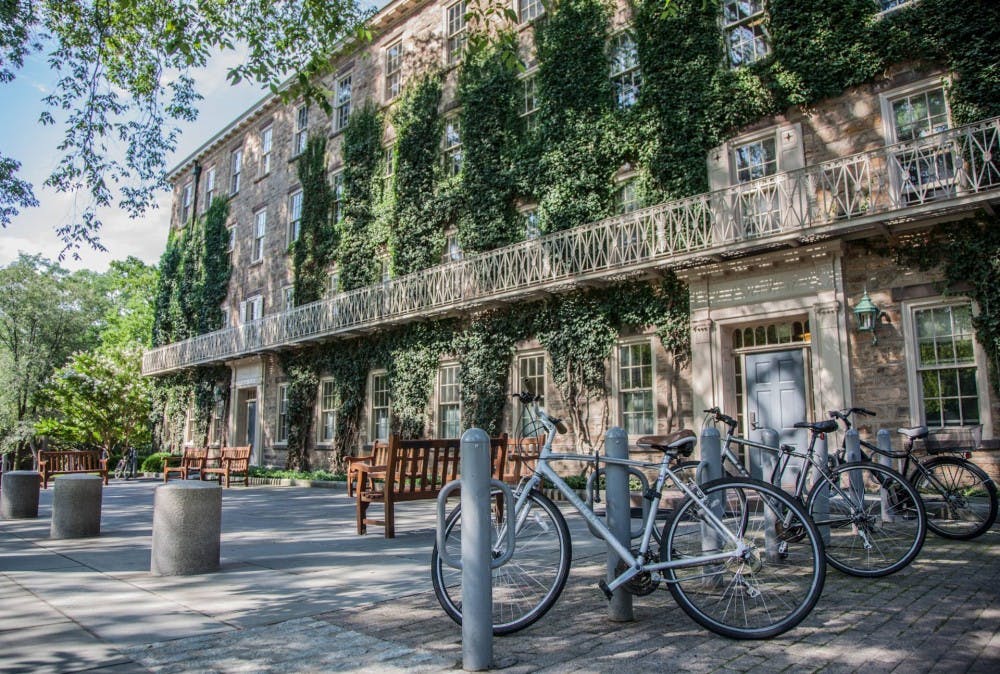As we pass the one-year anniversary of COVID-19 in the United States, I’ve realized that I’m part of the last class in a long time whose college applications will be free of the influence of COVID-19. While no future student will be able to brush aside the impacts of this torturous year, strict school closures have hurt the students who love school the most — students who would be great fits here at Princeton in future years. We must be sure not to leave them behind.
The impacts of the pandemic have not been equitable — especially in education. Private schools all over the country have brought students back while some of the largest public school districts haven’t seen in-person learning for all students since last March. The quality of remote education varies greatly from school to school. Some school districts are relying heavily on pieces of software like Edgenuity, a remote platform with little interactivity. The software reduces teachers to mere graders and even relies on AI essay readers, a feature students have learned to game through simply spamming keywords into the submission portal.
Just as importantly, while private sports leagues and academic competition teams continue to provide high quality extracurriculars for affluent students, middle- and working-class students who rely on their school districts for extracurricular activities have lost out, especially in states that have put hard restrictions on any sort of organized extracurricular gathering.
It’s not hard to see why high-achieving students in these environments — our potential classmates in another world — are especially vulnerable. Arbitrary grading penalizes students who are used to sailing through school. I’ve seen countless forum posts on Quora where terrified students describe plummeting grades due to the subpar circumstances. In addition, for many student leaders, extracurricular activities are not just an item on a resume; they are an identity, a space to show leadership. Without these spaces, students don’t just lose grade points or potential awards — they lose the space in life where they’re important. This has to have disastrous effects on confidence.
In the worst of these cases, the pandemic can take a life. Kooper Davis, a New Mexico high school football player, lost his life to suicide late last year. Kooper was a talented student-athlete with straight As and an aspiration to play at one of the top colleges in the country. A pastor described him as “one of the most driven people [he had] known.” His parents told ProPublica of the enormous toll the time away from school took on him. In another case, Trevor Till, a University of Illinois Urbana-Champaign freshman, committed suicide last October. Trevor had been class president, a member of the marching band and multiple sports teams at his high school. “Many days he was at school from 7 a.m. to 9 p.m. Seneca High School was his life,” his mother wrote in a Facebook post. He struggled with the transition to a virtual learning environment both in high school and in college.
While suicide cannot be ascribed to a single factor, Davis’s and Tills’s stories suggest that the transition to online learning has been particularly challenging for students who thrive in the school environment; students who might be most likely to succeed at Princeton.
In the middle of this crisis, Princeton and other universities will be selecting high school seniors to fill the Classes of 2025. Top schools have an unusually large application pool and fewer tools to distinguish individual students — specifically, fewer standardized tests. And many potential Princetonians, as we’ve seen, are simply demoralized — unable to keep up their own high standards in this terrible time. It’s just a fact that there are people who would have come to Princeton without the pandemic who now won’t.
The converse is true as well of course — there will be students that rose to the challenge of the pandemic who Princeton may have missed in another year. There are people oppressed by the realities of in-person school who have been given space to grow through online learning. We should and will be grateful for these people. But not everyone is in the same boat — while the affluent and students enrolled in in-person school districts have been able to retain both achievements and morale, the system hasn’t been there for those not so lucky.

We must mourn the toll that the pandemic has taken on such people, knowing that a Princeton admission offers the greatest opportunities to the same sorts of people now in unique danger of missing out on it. We cannot be content to just lose a generation of high school talent from shuttered schools.
Some steps the University can take include being more proactive with its transfer program in the coming years and ignoring pandemic slumps from future applicants. Admissions can focus more on pre and post-pandemic years or offer avenues to recoup credit and level the playing field.
One thing we cannot do is treat a pandemic slump like a moral failing. Each of us individually has to imagine ourselves in the position that so many top high school students find themselves in today. Do those circumstances make them any less worthy of a world-class education? We’re already losing so many potential students to the pandemic and parallel suicides. Let’s not lose any more out of ignorance.
Rohit Narayanan is a first-year and prospective electrical engineering major from McLean, Virginia. He can be reached at rohitan@princeton.edu.









